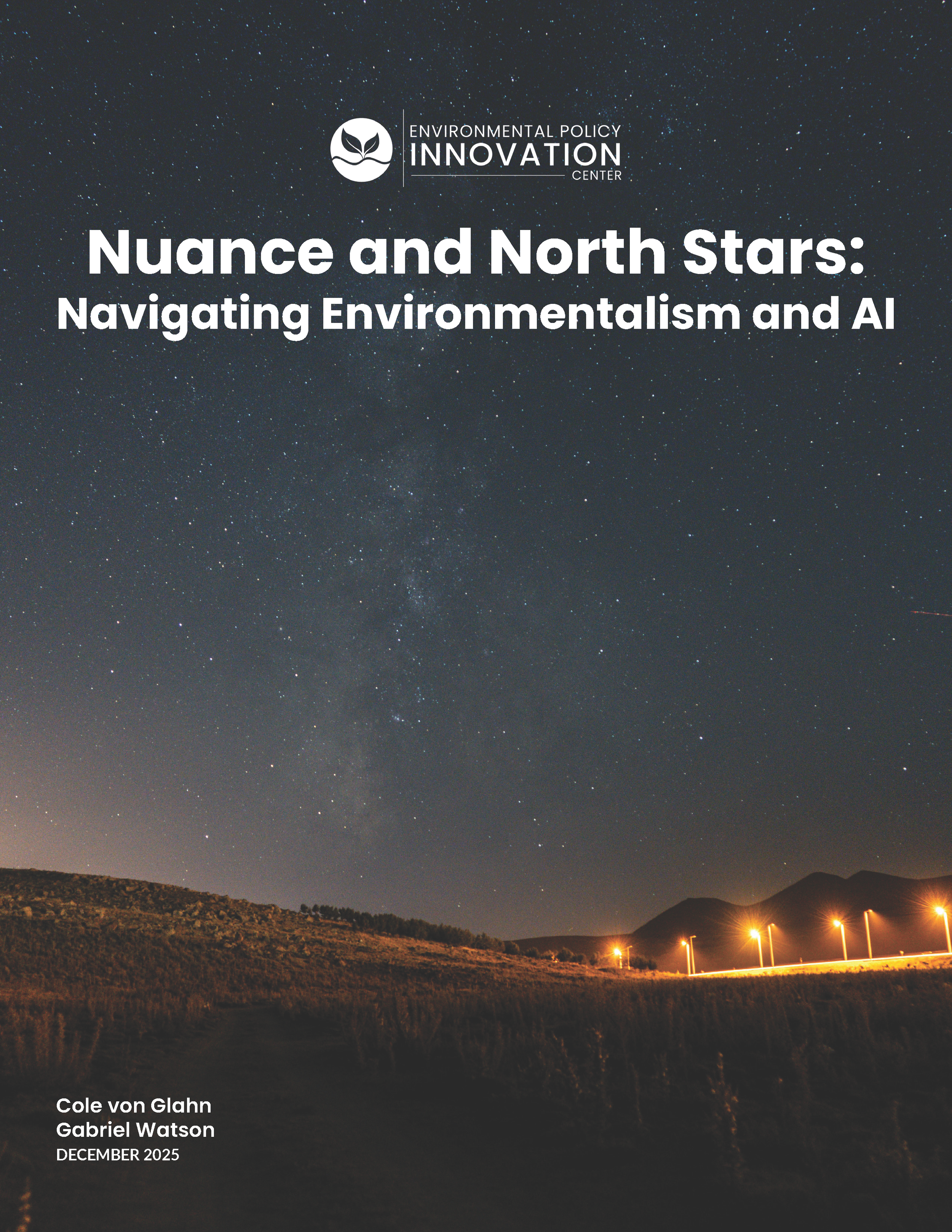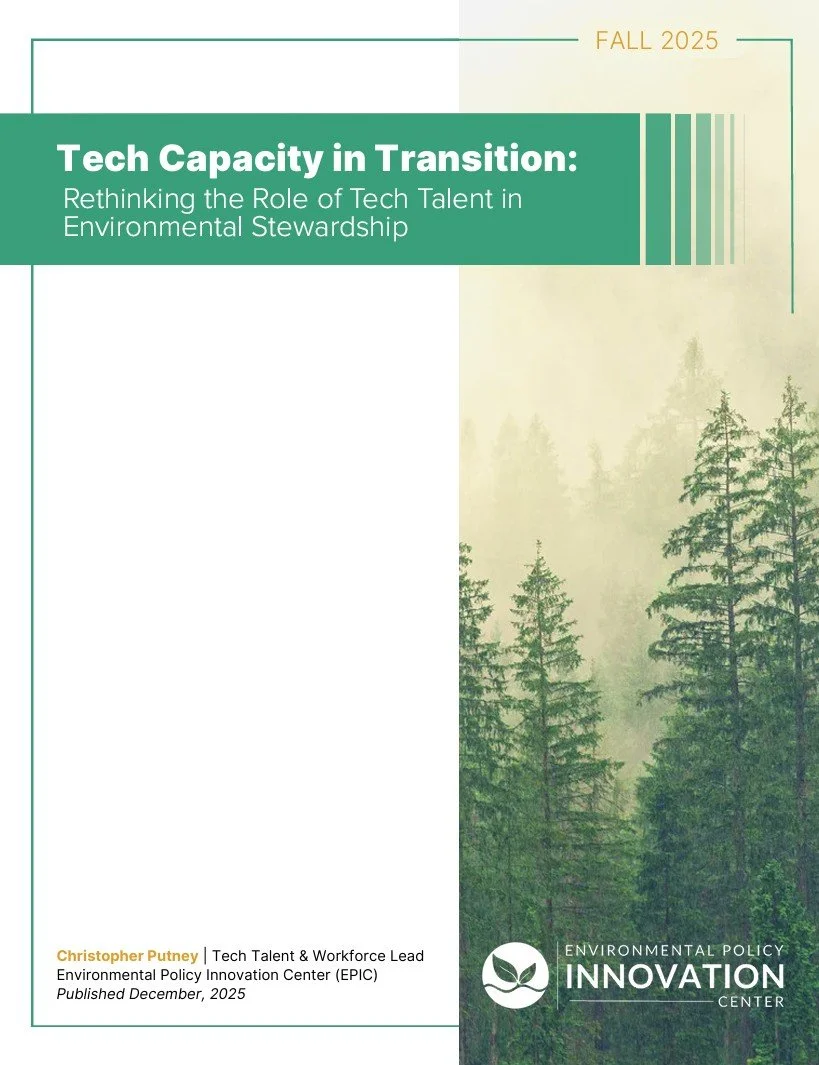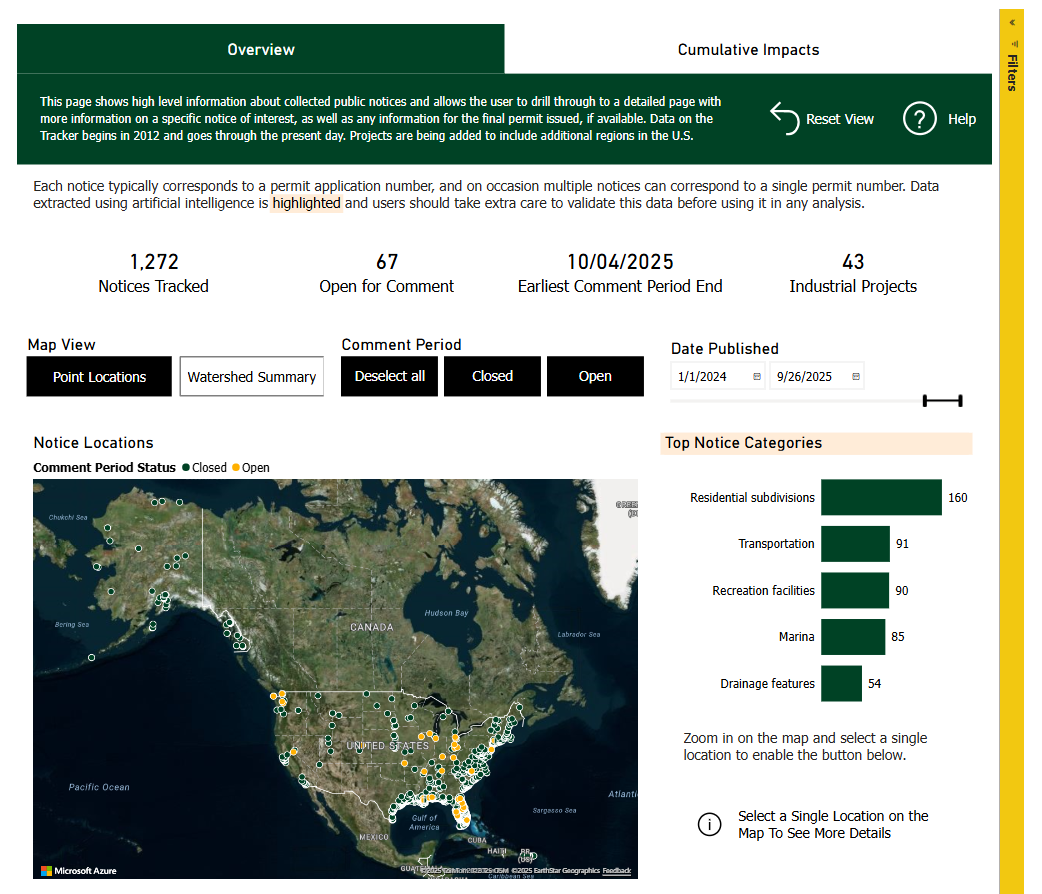
2025 In Review: Technology

Navigating Environmentalism and AI

EPIC Partners with National Academy of Public Administration to Accelerate Climate Resilience

TIME: The Women Saving America’s Climate Data

Tech Capacity in Transition: Barriers and Opportunities in Tech Talent

Tech Capacity in Transition: Rethinking the Role of Tech Talent in Environmental Stewardship

Energizing the Ecosocial Alternative for AI

Day 2 at the Society of American Foresters Conference: The Technology-Capability Gap

Expanding our Understanding of Wetlands: Nation-wide Updates to the Wetlands Impact Tracker

Empowering Our Forest Stewards: A New Era of Innovation

Predicting DOGE AI Deregulatory Tool Recommendations

Reimagining Forestry in the Digital Age: An Invitation to the Old Guard and the Next Generation

Updates to our Permitting Tools Inventory

Forbes Announces Jessie Mahr as Global Sustainability Leader!

NEPATEC2.0 - The Next Step in AI-Driven Permitting Innovation

Is the Juice Worth the Squeeze? Collecting Advisories for the National Drinking Water Tool

Conservation At the Axis of Artificial Intelligence and Acceleration: Killer Apps for Some, Questions for All

Inside Efforts to Capture Federal Data After ‘The Big Takedown’

Project Update: National Drinking Water Explorer Tool


